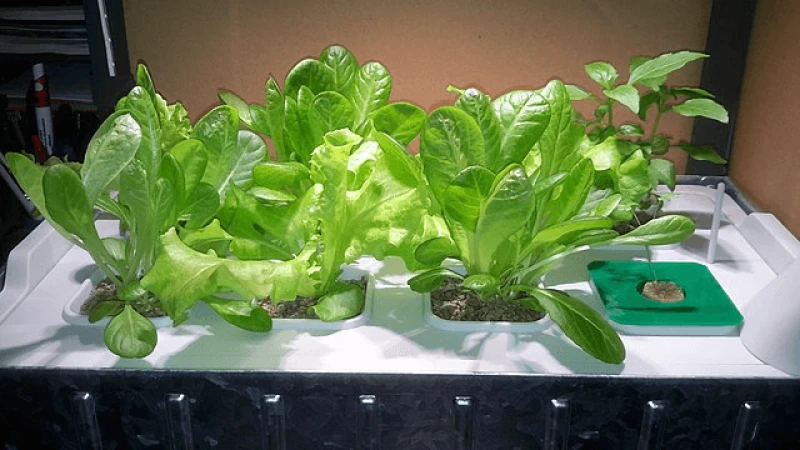The investment bubble surrounding indoor farming has burst. One plodding but high-tech startup is bucking the trend, and here’s how
The investment bubble surrounding indoor farming has burst. One plodding but high-tech startup is bucking the trend, and here’s how


Indoor farming startups seeking to revolutionize the nation’s food supply have endured a rocky year. Investors have significantly pulled back funding, forcing several companies once worth billions of dollars into insolvency.
Paul Sellew has been watching the situation with a mix of pride and hard-earned realism. Little Leaf Farms in Devens, which he cofounded and serves as chief executive, has been flourishing even as the bubble surrounding such startups appears to have burst.
“There was a little bit too much hype, and it was not grounded in the kinds of approaches that we’re doing here,” he said.
As of the end of 2022, investors had placed more than $2 billion in such companies across 158 deals, according to data by Pitchbook. But Little Leaf executives decided to forgo venture capital, worried that the rapid expansion often expected in the startup scene may not be sustainable for their vision.
Unlike other indoor farming startups that relied on costly electric-powered artificial lights to grow crops, Little Leaf opted to build a greenhouse that could harvest the power of the sun.
The former method is “quite expensive, in terms of both the capital and operating costs to buy and operate the lights,” Sellew said. “And then you have to have the heating, the ventilation, and the air conditioning.”
By contrast, “the sun is free,” he said.
This is an excerpt. Read the original post here

 | Videos | More... |

Video: Nuclear energy will destroy us? Global warming is an existential threat? Chemicals are massacring bees? Donate to the Green Industrial Complex!
 | Bees & Pollinators | More... |

GLP podcast: Science journalism is a mess. Here’s how to fix it

Mosquito massacre: Can we safely tackle malaria with a CRISPR gene drive?

Are we facing an ‘Insect Apocalypse’ caused by ‘intensive, industrial’ farming and agricultural chemicals? The media say yes; Science says ‘no’
 | Infographics | More... |

Infographic: Global regulatory and health research agencies on whether glyphosate causes cancer
 | GMO FAQs | More... |

Why is there controversy over GMO foods but not GMO drugs?

How are GMOs labeled around the world?

How does genetic engineering differ from conventional breeding?
 | GLP Profiles | More... |

Alex Jones: Right-wing conspiracy theorist stokes fear of GMOs, pesticides to sell ‘health supplements’




 Viewpoint — Fact checking MAHA mythmakers: How wellness influencers and RFK, Jr. undermine American science and health
Viewpoint — Fact checking MAHA mythmakers: How wellness influencers and RFK, Jr. undermine American science and health Viewpoint: Video — Big Solar is gobbling up productive agricultural land and hurting farmers yet providing little energy or sustainabilty gains
Viewpoint: Video — Big Solar is gobbling up productive agricultural land and hurting farmers yet providing little energy or sustainabilty gains Fighting deforestation with CO2: Biotechnology breakthrough creates sustainable palm oil alternative for cosmetics
Fighting deforestation with CO2: Biotechnology breakthrough creates sustainable palm oil alternative for cosmetics Trust issues: What happens when therapists use ChatGPT?
Trust issues: What happens when therapists use ChatGPT? 30-year-old tomato line shows genetic resistance to devastating virus
30-year-old tomato line shows genetic resistance to devastating virus California, Washington, Oregon forge immunization alliance to safeguard vaccine access against federal undermining
California, Washington, Oregon forge immunization alliance to safeguard vaccine access against federal undermining The free-range chicken dilemma: Better for birds, but with substantial costs
The free-range chicken dilemma: Better for birds, but with substantial costs ‘You have to treat the brain first’: Rethinking chronic pain with Sanjay Gupta
‘You have to treat the brain first’: Rethinking chronic pain with Sanjay Gupta
